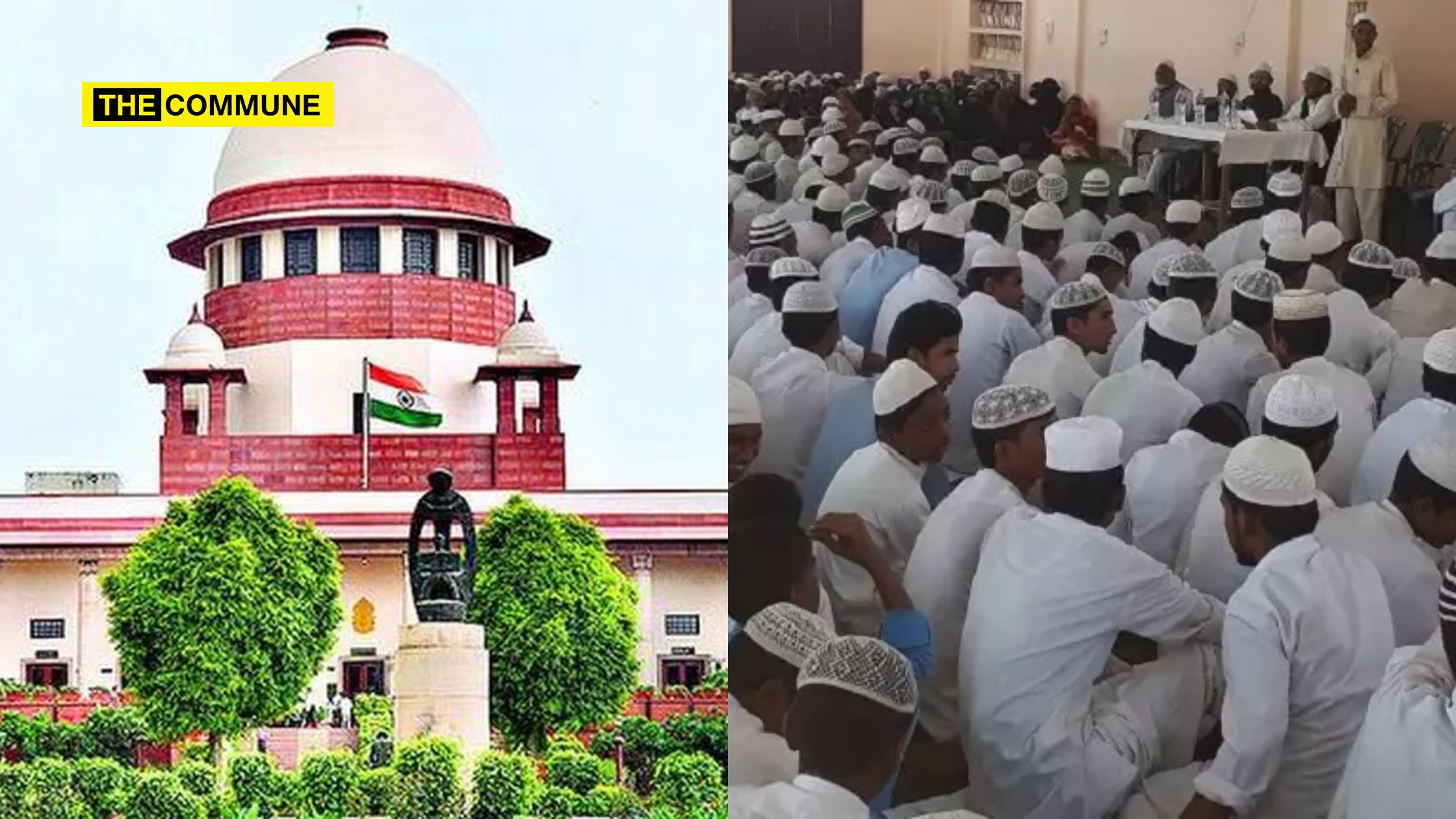
The Supreme Court has prohibited mandatory religious instruction in state-funded minority educational institutions, regardless of the extent of state contribution towards their budget. The judgement specifically discussed the Aligarh Muslim University (AMU), a fully state-funded institution.
Ruling on minority educational institutions
The bench, including CJI D Y Chandrachud and Justices Sanjiv Khanna, Surya Kant, J B Pardiwala, Dipankar Datta, Manoj Misra, and Satish Sharma, clarified that once the government recognises a minority institution, the organisation cannot make religious teachings compulsory for its students. These remarks came in response to the 1951 AMU Act 1920 amendment, which eliminated mandatory religious teaching for Muslim students.
The bench said that the conditions of government grants apply to all educational institutions, regardless of their minority or non-minority status, as the Times of India reported.
The report said Justice Khanna emphasised that such institutions receiving any government grant, even as low as one per cent of their budget, can offer religious teaching only to students who volunteer for it.
“We accept the position that a minority institution, wholly funded by the state, cannot impart any religious teaching to its students. When it receives any grant, even if one per cent of its budget comes from the government, the minority institutions can provide religious teaching only to students volunteering for it.”
Additionally, the bench highlighted that the university’s historical non-minority character, as defined in the AMU Act, cannot be altered based on post-constitutional considerations.
The TOI report added that Solicitor General Tushar Mehta also noted the significant government grants received by AMU from multiple communities, emphasising its national importance and high ranking among universities.
(Subscribe to our Telegram, WhatsApp, and Instagram channels and get the best stories of the day delivered to you personally.)




